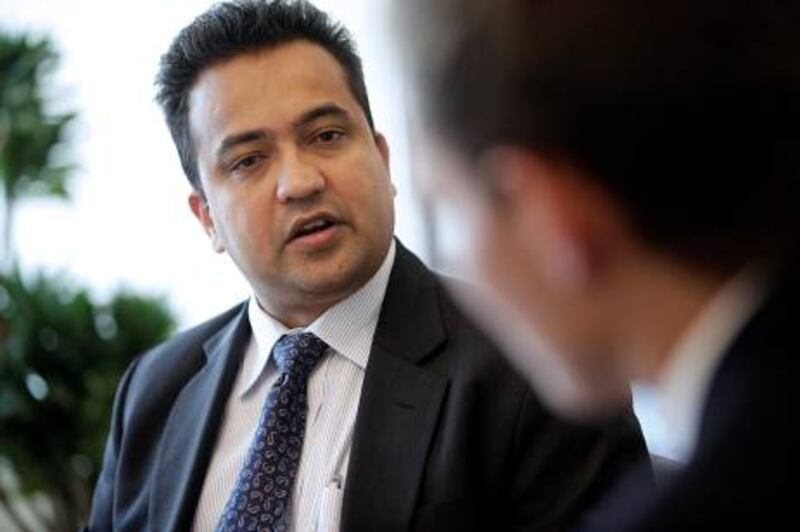Tabreed, the Abu Dhabi utility company, will increasingly focus on converting older buildings to central cooling systems as new development in the UAE slows, says its chief executive.
The company, which was hard hit by the building downturn, reported a 54 per cent jump in net profit for the third quarter yesterday, to Dh54.1 million (US$14.7m) compared with Dh35m in the same period last year.
Location, location, location:
Industry Insights What's hot and what's not in the world of property. Learn More
The company completed 11 new cooling plants in the quarter, including eight plants for the Dubai Metro Green Line. But new construction will slow next year, with only two new plants scheduled for the UAE, it said.
Convincing owners of older buildings to convert from traditional internal systems to the company's centralised, chilled-water systems is seen as a growth business.
"Historically, conversions have been a small part of the business," Sujit Parhar, the chief executive of Tabreed, said yesterday. "The idea is that we have the assets, we can increase the yields of these assets."
Mr Parhar declined to estimate the size of the conversion business or its potential for generating revenue for the company. Tabreed says its central, chilled-water system is cheaper and more efficient than traditional standalone versions.
"If you look at some of [the] buildings in Abu Dhabi, a lot of them are approaching the age of 10 to 14 years and that is typically the time when they replace existing machines," Mr Parhar said.
Tabreed's revenue for the first nine months of the year was up 10 per cent to Dh842m from Dh763m in the same period a year ago as its business stabilised after a rocky period. Net profit for the nine months was Dh129.8m compared with Dh115.7m.
The company's gross profit margin increased to 41 per cent, due to "economies of scale and cost discipline," it said.
In April, Tabreed refinanced Dh2.63 billion in debt as part of a company restructuring. Mubadala Development, a strategic investment company owned by the Abu Dhabi Government, invested Dh3.1bn and increased its stake in the company.
Mubadala now controls 27.3 per cent of Tabreed. The share includes a 14.8 per cent stake held directly by Mubadala and a further 11.29 per cent held through General Investments, its subsidiary.
Waleed Al Mokarrab Al Muhairi, the chief operating officer of Mubadala, was appointed the chairman as part of a board shake-up.
In July, Tabreed repaid a Dh735m sukuk. The company will not need to raise any more capital in the near future, Mr Parhar said.
"We are fully funded until the end of 2012," Mr Parhar said. "From there we are self-funding."
The infusion from Mubadala settled the company's debt issues, Mr Parhar said. But the capital spending campaign is now in its final stages.
"What we required was basically a bridge until the time we are self-funded," he said.
Mr Parhar declined to discuss the recent disputes in Dubai over cooling fees developers are charging customers. Jumeirah Beach Residences recently complained they were paying up to Dh1,000 a month for air conditioning.
Some customers were told the additional fees were to pay for the conversion to central cooling.
But Tabreed is a wholesaler selling to developers and is not involved in any pricing issues with customers, Mr Parhar said.
"What developers do with the end users we don't get involved [with]," Mr Parhar said. "How it is implemented is not something we are a party to."
twitter: Follow and share our breaking business news. Follow us





